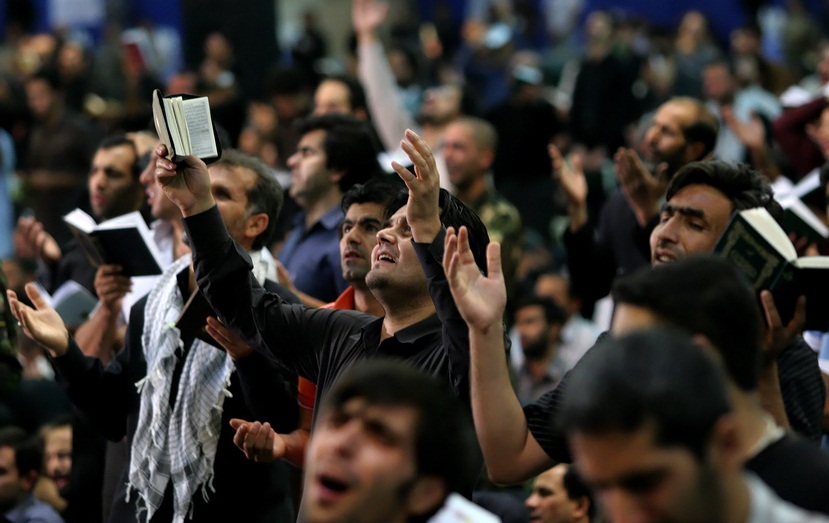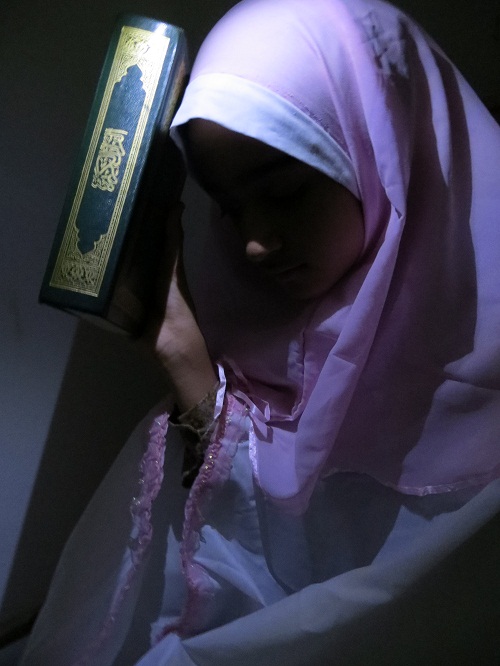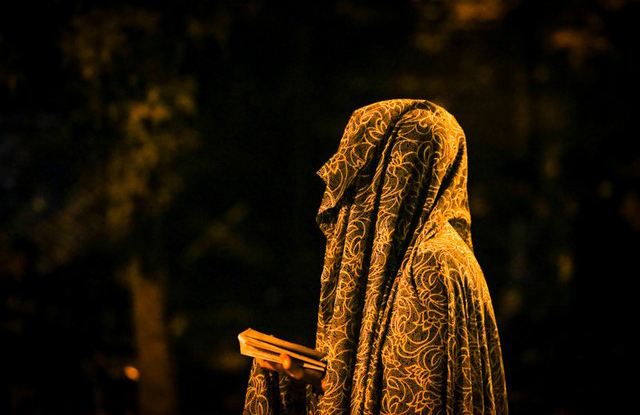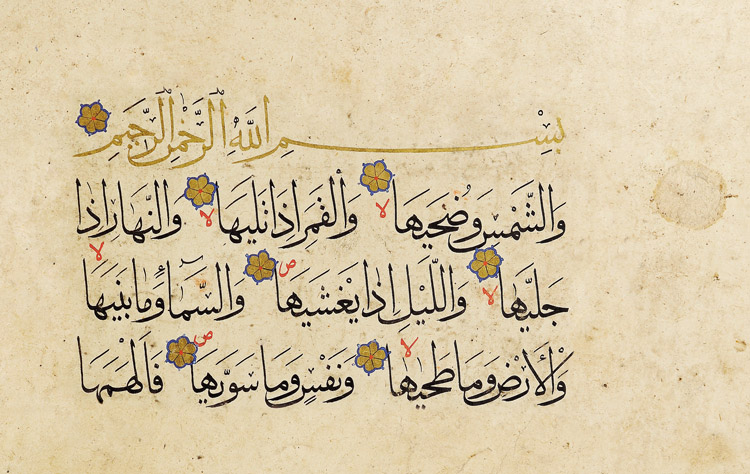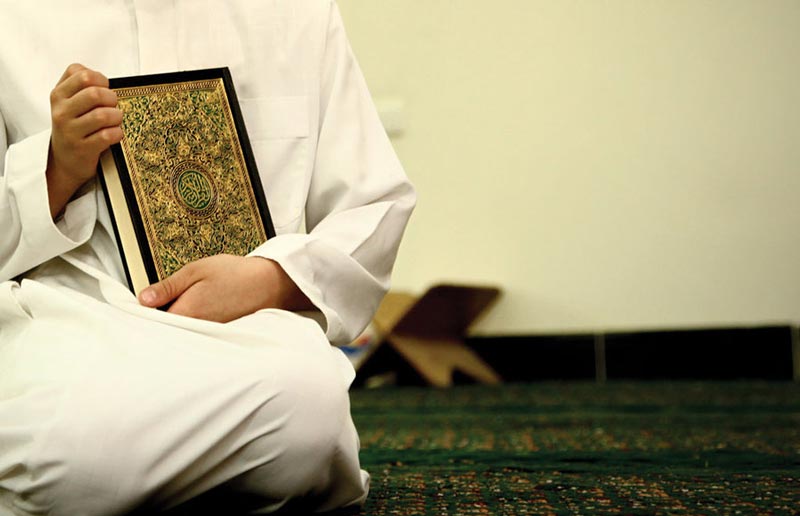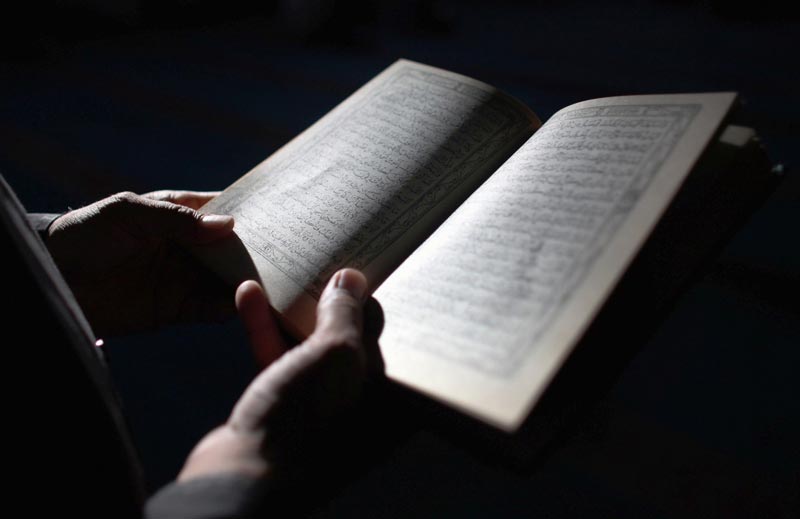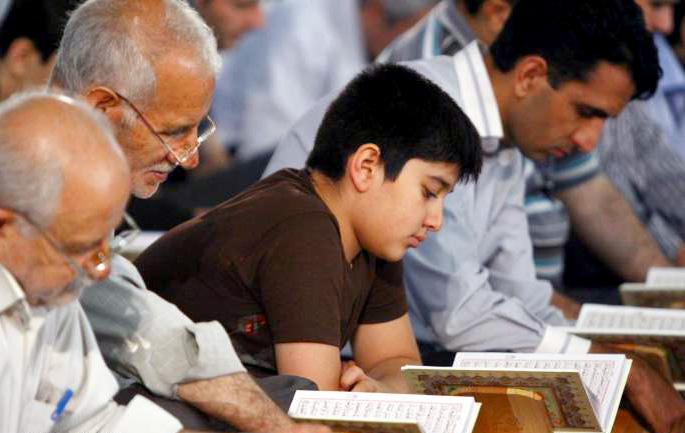The Night of Destiny

The Messenger of Allah, once said:
“Allah has favored Friday over all other days, the month of Ramadhan over all other months, and the Night of Destiny (Lailatul-Qadr) over all other nights.” *[su_divider top=”no” style=”dotted” divider_color=”#dbf3ec” size=”2″ margin=”35″]
Ibrahim, one of the companions of Imam Abu Abdullah al-Sadiq (as), is quoted on p. 25, Vol. 94, of Bihar al-Anwar, saying that he once asked the Imam (as) about how the Holy Qur’an was revealed during Lailatul-Qadr, knowing that it took more than twenty years to reveal.
The Imam (as) answered by saying: “The Holy Qur’an was revealed as a whole during the month of Ramadhan at the Ancient House (the Ka’ba), then from there it was revealed along the span of (more than) twenty years.”
Then he cited the Messenger of Allah (S) saying: “The Books of Ibrahim (as) were revealed on the first night of the month of Ramadhan; the Torah was revealed on the sixth of the month of Ramadhan; the Gospel (Injil) was revealed on the thirteenth of the month of Ramadhan; the Psalms (Zabur) were revealed on the eighteenth of the month of Ramadhan, and the Holy Qur’an was revealed on the twenty-fourth of the month of Ramadhan.” This tradition is also recorded on p. 80, Vol. 1, of al-’Ayyashi’s Tafsir.
[su_divider top=”no” style=”dotted” divider_color=”#dbf3ec” size=”2″ margin=”35″]
Why this night is called “The night of Destiny”?
This name was used for Lailatul-Qadr because Allah Almighty determines in it for everyone all what will happen the entire next year. The “Qadr” in this sense means destiny. According to al-Qummi’s Tafsir, as explained on p. 432 of its second volume, such destiny includes life and death, sustenance, abundance of crops or famine, and everything good or bad. This means that Allah the Glorified and Exalted determines in this night each and every event to occur during the next year to any and all of His creation.
[su_divider top=”no” style=”dotted” divider_color=”#dbf3ec” size=”2″ margin=”35″]
Al-Majlisi quotes his father on p. 12, Vol. 94, of his own Bihar al-Anwar quoting Ibn Maskan quoting Imam Abu Abdullah al-Sadiq (as) saying, “During Lailatul-Qadr, the angels, the spirit, and the trusted scribes all descend to the lower heavens and write down whatever Allah decrees that year, and if Allah wishes to advance something or postpone it or add thereto, He orders the angel to erase it and replace it with whatever He decrees.” This is also confirmed by al-Qummi in his renown Tafsir, exegesis of the Holy Qur’an.
[su_divider top=”no” style=”dotted” divider_color=”#dbf3ec” size=”2″ margin=”35″]
On p. 182, Vol. 1, of ‘Uyun Akhbar al-Rida, and on p. 14, Vol. 94, of Bihar al-Anwar, quoting Sulayman al-Marzawi asking Imam al-Rida (as), “Could you please tell us why the Chapter of Qadr was revealed?” The Imam (as) said, “O Sulayman! Lailatul-Qadr is the night when Allah, the most Exalted, the most Great, decrees what will take place from one year to another of life or death, good or evil, or regarding sustenance, and whatever He then decrees is sure destiny.”
[su_divider top=”no” style=”dotted” divider_color=”#dbf3ec” size=”2″ margin=”35″]
On p. 315 of Ma’ani al-Akhbar, and also on p. 18, Vol. 94, of Bihar al-Anwar, quoting Ibn Nubatah quoting Imam Ali ibn Abu Talib (as) saying, “The Messenger of Allah (S) asked me once, ‘O Ali! Do you know the implication of Lailatul-Qadr?’ I said, ‘No, indeed, O Messenger of Allah!’ He (S) said, ‘Allah, the Praised One, the Most Glorified, decreed in it what will take place till the Day of Judgment, and among what He, the most Exalted, the Most Great, decreed was your own Imamate and Wilayat and the Imamate and Wilayat of your offspring till the Day of Resurrection.”
[su_divider top=”no” style=”dotted” divider_color=”#dbf3ec” size=”2″ margin=”35″]
Both Ma’ani al-Akhbar and Bihar al-Anwar, quoting al-Fadl ibn ‘Uthman saying, “When the Chapter of Qadr was mentioned in the presence of Abu Abdullah Imam Ja’far al-Sadiq (as), he was asked about its merits over other chapters, and he said, ‘It was revealed with reference to the Wilayat of the Commander of the Faithful (Imam Ali) (as).’ He (as) was asked, ‘Do you mean Lailatul-Qadr for which we look in anticipation during the month of Ramadhan?’ He (as) said, ‘Yes; it is the night in which the heavens and the earth were determined, and the Wilayat of the Commander of the Faithful (as) was decreed.'”
[su_divider top=”no” style=”dotted” divider_color=”#dbf3ec” size=”2″ margin=”35″]
Ahmed ibn Muhammad and Ahmed ibn Ishaq, as recorded on p. 21, Vol. 94, of Bihar al-Anwar, quote al-Qasim ibn Yahya quoting others citing Imam Abu Abdullah (as) saying that Ali ibn Abu Talib (as) quite often used to say, “We saw the Messenger of Allah (S) once in the company of al-Taymi and a friend of his while the latter was reciting Chapter al-Qadr. He (S) was profoundly moved and he kept weeping to the extent that he (S) was asked, ‘How so deeply moved by this Chapter your heart is!’
He (S) said, ‘My heart is deeply impressed because of what my eyes had witnessed, and what my mind had comprehended, and because of what the heart of this man [meaning Ali (as)] will go through after me.’ Both men asked the Messenger of Allah (S), ‘Did you really see all of that?! And what will he (Ali) see?’ He (S) would then recite the verse saying, ‘The angels and the Spirit descend therein with the permission of their Lord for every affair; peace, it is, till the break of the morn.’
Then he (S) would pause and ask them, ‘Is there anything left after the Almighty having verbally said ‘every affair’?’ They would both answer in the negative, and he (S) would then ask them, ‘Do you both know regarding whom it is revealed?’ They would both say, ‘No, by Allah, O Messenger of Allah!’
He (S) would then say, ‘Yes; is there going to be a Lailatul-Qadr after me (I.e., after my demise)?’ They would answer in the affirmative, and he (S) would then ask them, ‘Will every affair descend therein?’ They said: ‘Yes.’ He then asked them, ‘To whom will it descend?’ They answered, ‘We do not know.’ He (S), with his hand on my head, pushed me gently forward and said, ‘If you do not know, then it is regarding this person after me.’ Both men, ever since the demise of the Messenger of Allah (S), used to be filled with awe whenever that night approached.”
———————-
* Muftahul Jannat , Vol. 3 , page 265

